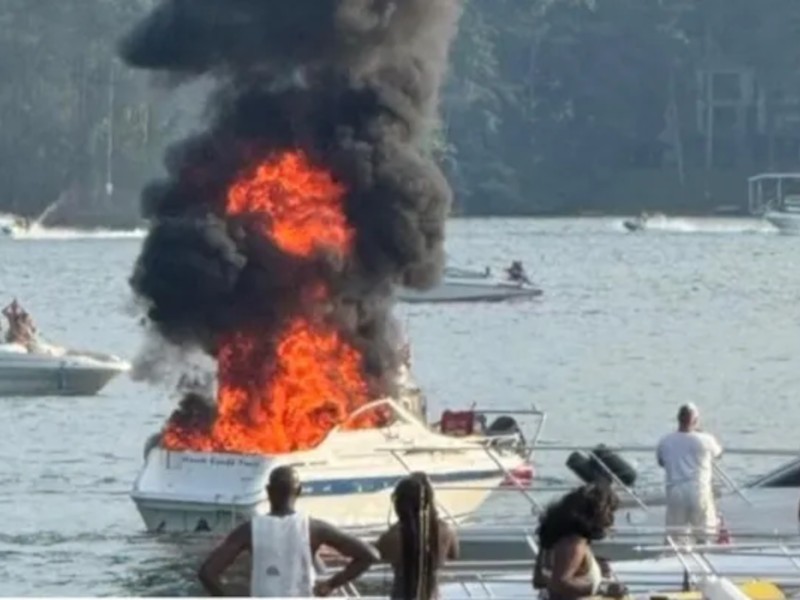After 14 total people were injured in a pair of boat explosions in Northeast Georgia on the Fourth of July, a Georgia Department of Natural Resources official is offering tips for boaters to help prevent similar incidents.
Mark McKinnon with the DNR said explosions like the ones seen on Lake Lanier and Lake Nottely last Friday are rare, but not unheard of on Georgia waterways.
"We do see a few of these across the state every year," McKinnon said.
McKinnon said the problem often starts when someone is refueling the boat.
"When someone is refueling their boat and they leave all the compartments closed, what happens is, fumes build up in those closed compartments all along the boat, and then when they go to start the engine to drive away, a spark will ignite those fumes, and that starts a fire or an explosion," McKinnon said.
As of Thursday, investigators have not released the official causes of either of the Northeast Georgia boat explosions from the Fourth of July. The Lake Nottely explosion, however, was confirmed by DNR officials to have happened shortly after that boat had left a marina after refueling.
McKinnon said there are simple steps a boater can take to prevent a refueling from leading to an explosion or fire.
"Open all those compartments up, refuel the boat, and then you leave those compartments open for about five minutes minimum before you attempt to crank the boat," McKinnon said. "That will allow those fumes to dissipate and will greatly reduce the chance that there will be a fire or an explosion."
McKinnon said it's also important for those renting boats to make sure they're using the correct fuel recepticle on the boat.
He added that it's important to have the proper safety equipment onboard a boat in case a fire breaks out.
"If the fire is very small to begin with and you have a fire extinguisher handy, you can attempt to put that fire out," McKinnon said. "Be sure you have your life jacket readily accessible or on. If there's an explosion and you are thrown out of the boat or maybe incapacitated, if you do not have a life jacket on, your chances of survival are very slim. If you do have the life jacket on, you are more likely to survive something like that."

http://accesswdun.com/article/2025/7/1292797/dnr-official-offers-tips-to-prevent-boat-explosions-after-incidents-seen-in-nega
